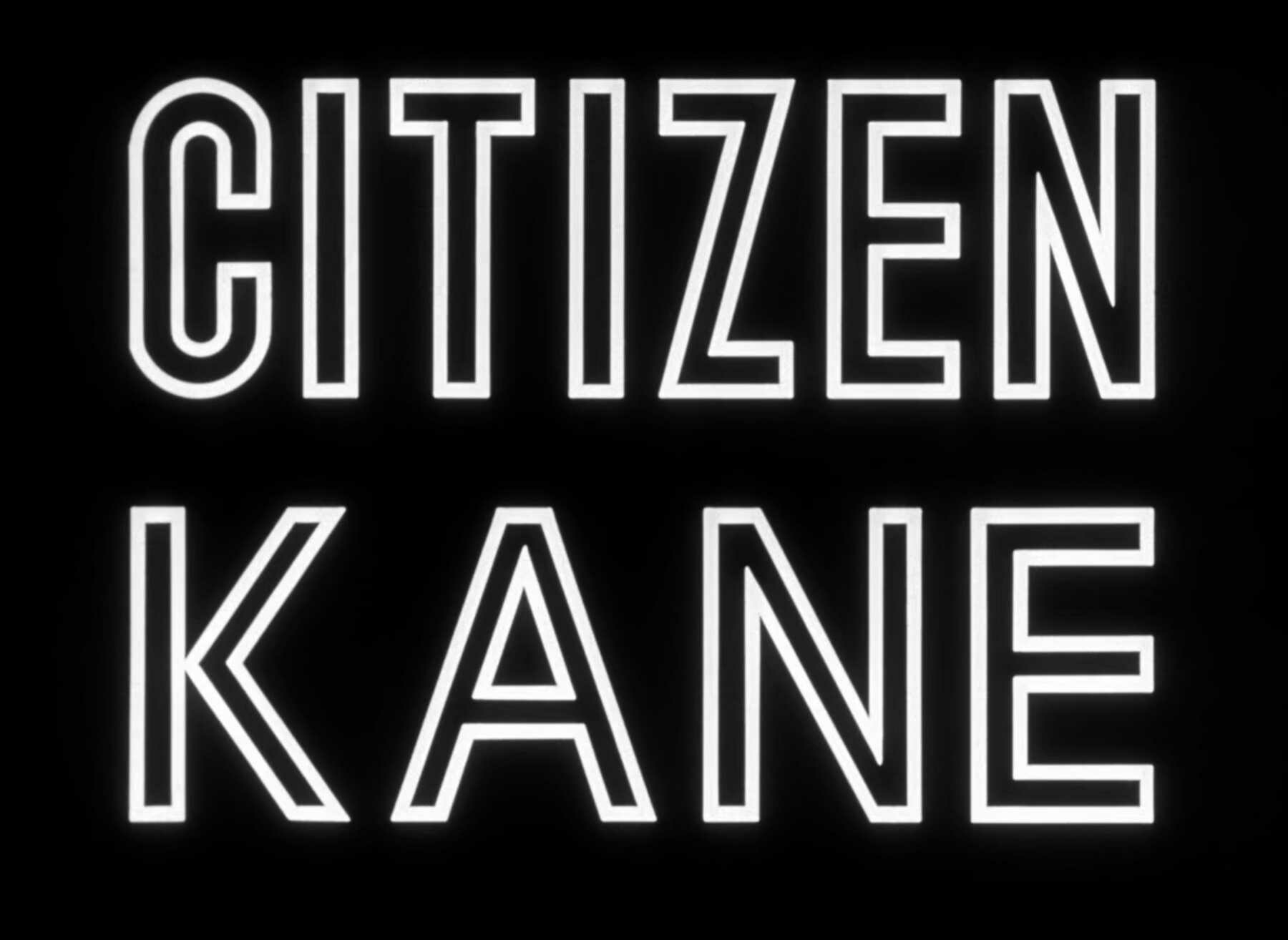Title Card: Citizen Kane (1941)
Citizen Kane was written by Herman Mankiewicz and Orson Welles and was directed by Orson Welles. It was released in 1941. The film was produced by RKO Radio Pictures and Mercury Productions.
On his deathbed, the elderly Charles Foster Kane, played by Orson Welles, utters one final word before passing: “Rosebud.” Kane, a wealthy newspaper publisher and industrial magnate, has always garnered much attention, so his death is big news. His last word presents a mystery that newsreel producer Jerry Thompson, played by William Alland, is tasked with uncovering. Through interviews with Kane’s friends and associates, more is learned about the history of this prolific and imposing man. His newspaper business, his failed romantic relationships, and the great highs and lows of his life are described by those who knew him. By the end of this tale, there is a greater understanding of the man, but will anyone ever discover the true meaning of the word “Rosebud”?
At this point, there’s probably little to be gained from me waxing on about the importance of this monumental film. The subject matter has been talked to death. The character of Charles Foster Kane, and his clear inspiration in William Randolph Hearst, have been dissected enough. Heck, most everyone probably knows what the heck “Rosebud” is by now.
Instead, what strikes me most about this title card is not the film that follows, but instead the imposing nature of the letters. The words “CITIZEN KANE” take up the entire screen. They’re as large as the film itself, which is to say, larger than life. They tower over the audience in a pompous, arrogant, and self-important manner, as if to reflect the personality that’s central to the film. However, behind that grand façade lies an insecure man who longs for the comforts of his childhood. The letters of the title card might be seen as something of a put-on. A shield that Kane can use to hide behind, all the while wishing that he could recapture his youthful happiness while hiding away from the dread that comes with facing the world he built for himself. The title card personifies a man who is theatrical and legendary for the world, yet diminutive in private.
Also, I’ve really been captured by the first trailer for the film. It’s still unlike anything you’ll ever see. For a film that was released in 1941, it feels far ahead of its time. Considering how unusual the trailer is, it’s probably far ahead of any time. Instead of a tapestry of shots from the film that describe the general plot, we’re treated to a voice-over from Welles himself, narrating aspects of the production and introducing many of its main players. Give this fascinating thing a watch. 🎞
